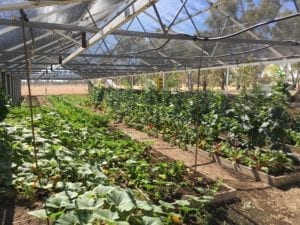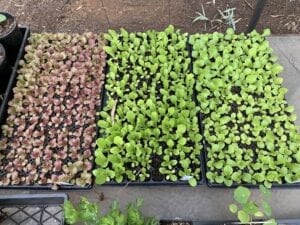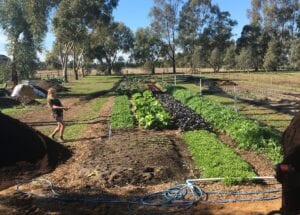Organic Practices in Agriculture
Our farming practices may be unconventional but they have resulted in our farm being one of the highest production farms per square metre in the area.
We practice farming by hand; replacing the broad-acre tractor with hand tools. All planting, cultivation, and harvesting is done manually, though we use modern tools and techniques that keep us efficient and competitive. We find that farming this way is easier, more productive, and can produce vegetables of a higher quality.
Deep and Intensive
We practice intensive planting and growing techniques. Our beds are replanted constantly throughout the season from early Spring through early Winter. Our green house produces vegetables year round. We do this by maintaining extremely fertile soil. As a result we do not need to leave fields fallow. We believe that farming this way creates healthy vegetables resistant to diseases and pests.
No Till
Strictly speaking, it is impossible for us to avoid all tillage on our farm. Tilling is the act of preparing the land for seeding or planting. This includes the plow on every seeder and transplanter, using a rake on beds to smooth them, and can even be the act of using your fingers to dig and make holes for transplanting.
Thus “No Till” at Freshcargot, is really about reduced soil disturbance and making my best effort to keep soil layers intact.
We use permanent beds that reduce soil disturbance. Instead of tilling our fields we manually broadfork our permanent beds and only cultivate the soil surface. This maintains soil structure and the life it supports, reduces our weed pressure, increases our organic matter, and we believe, produces great produce.
With the intense heat of summer in the Northern district, a 450m2 shadehouse was constructed in 2018 to ensure production of broadleaf crops. The added bonus of this structure was exclusion of persistent pests such as Cabbage butterfly and Curcurbit beetles.


It all starts from a seed. Three varieties of lettuce.
Ready for harvest


